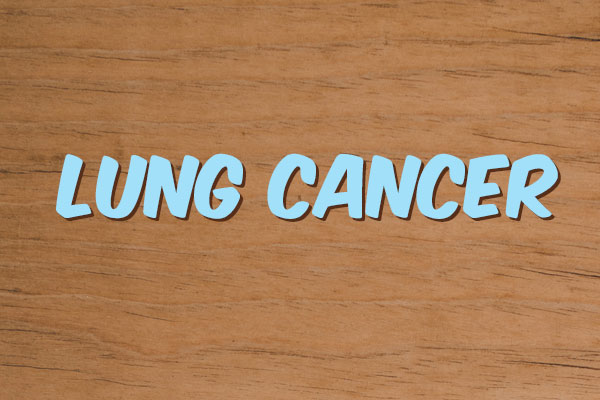Answers to Your Questions about Lung Cancer
What does my lung cancer diagnosis mean for me?
After being told you have lung cancer, you may wonder what your prognosis will be – what this diagnosis means for your future and your health. You may see estimates of how long a person may live after a particular type or stage of lung cancer is diagnosed and assume that this is what will happen to you. Try not to think this way.
Remember:
- You are not a statistic. Statistics cannot predict what will happen to you. You are a unique individual, and no one can predict exactly how your body will respond to your lung cancer and treatment. Lung cancer statistics estimate the average survival for all people with a specific type and stage of lung cancer.
- Lung cancer statistics are based on information from studies that were done from three to ten years ago. Today’s newer therapies have not been around long enough to affect the statistics, so your prognosis may be far more hopeful than the statistics suggest. The chances of being cured of lung cancer depend mostly on the stage of lung cancer you have. Early-stage cancer is the easiest to treat and has the best chance of being cured. If the cancer has spread to other places in the body, the goal of treatment is to keep the cancer under control for as long as possible. If you have read or are told that your cancer cannot be cured, remember that incurable cancer can be treated and may be stabilized. Newer treatments are helping some people with lung cancer live good, meaningful lives for years after their diagnosis.
What are my treatment choices?
Chemotherapy, radiation, surgery, targeted therapies, and immunotherapy are the main treatment options for lung cancer. However, a number of factors can affect which treatments will be best for you; these factors include your cancer’s particular type and stage, location, and genetic or other molecular characteristics. Promising new treatments may be available through clinical trials, so be sure to ask your doctor about these options. You and your doctor should discuss clinical trials as an initial treatment option.
How long will my treatment last?
The length of your treatment will depend on the type and stage of lung cancer you have and how well you respond to treatment. Your treatment plan will be explained to you before therapy begins. If you have questions, be sure to ask your doctor or care team. You will receive regular check-ups to see how your treatment is working. If your cancer does not respond to the first treatment you receive, your doctor may discuss other treatment options with you.
Should I consider joining a clinical trial?
Clinical trials are research studies that measure how well new drugs, treatments, or tests work, or that help doctors learn more about cancer or other diseases. Many people feel they get more attention, more care, and more frequent check-ups if they participate in a clinical trial. Trials are generally available for every stage and type of lung cancer, although every individual may not be eligible for a given trial. Many people fear they will receive a placebo if they participate in a clinical trial. When placebos are used in a trial, participants almost always receive them in addition to standard, proven treatments. Moreover, participants are always fully informed if they join a trial where they may receive a placebo. Use the tool at lungcancerresearchfoundation.org/for-patients/clinical-trials/ to find clinical trials in your area. To get help by phone, call the Lung Cancer Support Line at (844) 835-4325.
What is chemotherapy?
Chemotherapy is a word used for drugs that kill cancer cells, usually by disrupting how the cells divide. Chemotherapy is based on the principle that cancer cells grow and divide more rapidly than normal cells. However, because some normal cells (hair cells, for example) also grow and divide rapidly, chemotherapy can sometimes kill those cells as well.
What are targeted therapies?
Targeted cancer therapies are treatments or drugs that specifically interfere with the ways cancer cells – and not normal cells – survive, grow, and spread. These drugs “target” specific molecules (genes, proteins, etc.) in the tumor cells, and therefore are more specific to cancer cells than chemotherapy is, thereby causing less damage to normal cells. Not all tumors have the same abnormal targets, so your doctor may take a sample of your tumor and run tests (often called comprehensive biomarker testing) to try to match the most effective treatment for your cancer. You should ask your doctor about whether such testing is appropriate for you.
What is immunotherapy?
Immunotherapies are treatments that boost a person’s own immune system to fight cancer. In recent years, immunotherapies have become a potential breakthrough in the treatment of several types of cancer, including lung cancer.
Reprinted with permission from Lung Cancer Research Foundation, lungcancerresearchfoundation.org.
This article was published in Coping® with Cancer magazine, September/October 2019.


